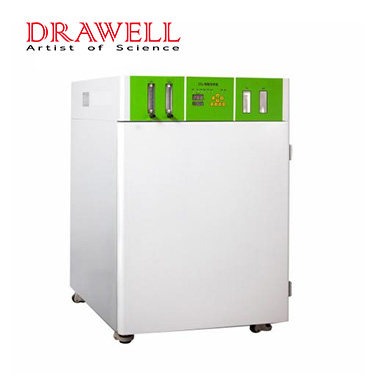CO2 incubators have become a staple in laboratories around the world, playing a pivotal role in various scientific and research endeavors. In this article, we'll delve into the significance of CO2 incubators, their standout features, different types available, steps for proper operation, and a reliable source for obtaining these essential devices.
The Role of CO2 Incubators
CO2 incubators emulate the growth environment found within living organisms, making them indispensable tools for cell and tissue cultures, as well as the cultivation of specific microorganisms. Their applications extend to the study of cell dynamics, collection of mammalian cell secretions, investigating carcinogenic or toxicological effects, antigen production, tissue engineering, and drug screening, among other research fields.

Notable Features of CO2 Incubators
Advanced Carbon Dioxide Concentration Detection: Equipped with long-lasting and highly reliable thermal conductivity carbon dioxide concentration detectors.
Sterilization and Filtration: Incorporates UV lamp disinfection and a sterile air filtration system for maintaining a clean environment.
Efficient Heating: Utilizes an air jacket heating system for rapid heating without the need for frequent maintenance.
Robust Alarm System: Features a comprehensive sound and light alarm system that triggers for overheating, temperature probe damage, or water shortage.
Enhanced Humidity Control: The bottom of the unit functions as a reservoir, ensuring fast evaporation and rapid humidity recovery upon door closure.
User-Friendly: Designed with simple and intuitive operation for ease of use.
Three Types of CO2 Incubators
DCI Series CO2 Incubator:
Features RS485 and RS232 connectors for connectivity.
Equipped with a wireless alarm system, HEPA filter system, and automatic humidification system.
Requires self-sterilization at 90℃.
WJ-2 Series CO2 Incubator:
Incorporates a water jacket and air jacket structure.
Utilizes a PID microprocessor for precision control.
Includes sterile air filtration devices and a UV light system.
Available in chamber volumes of 80 L and 160 L.
WJ-3 Series CO2 Incubator:
The WJ-3 series CO2 incubator is Controlled by a microcomputer.
Features a water jacket and air jacket structure.
Utilizes LED indication for various working states.
Equipped with an imported infrared sensor for accuracy and longevity.

Operational Steps of CO2 Incubators
Thoroughly clean and disinfect the interior with alcohol, followed by ultraviolet or ozone sterilization before powering on.
Power on the unit, adjusting the temperature settings to the desired level (e.g., 37°C). The flashing light indicates that the incubator is heating. (Note: In high ambient temperatures, air conditioning can help maintain optimal conditions.)
Sourcing CO2 Incubators
For reliable CO2 incubator acquisition, Drawell stands out as a manufacturer of choice. Here's why:
Strength of Drawell:
With quality and customer service at the forefront, Drawell provides professional laboratory equipment to meet diverse research needs, offering solutions and services in primary research, biotechnology, and clinical applications. Variety of Incubators:
Drawell offers an array of incubators, including the mentioned CO2 incubator types, along with sharking incubators. This enables informed comparisons and optimal selection.
Competitive Pricing:
Drawell offers competitive factory prices without compromising quality, ensuring high-value CO2 incubators for various applications. In conclusion, CO2 incubators serve as indispensable tools in modern laboratories. Understanding their roles, features, types, proper operation, and reliable sourcing options, such as Drawell, empowers researchers to make informed decisions that contribute to successful scientific endeavors.